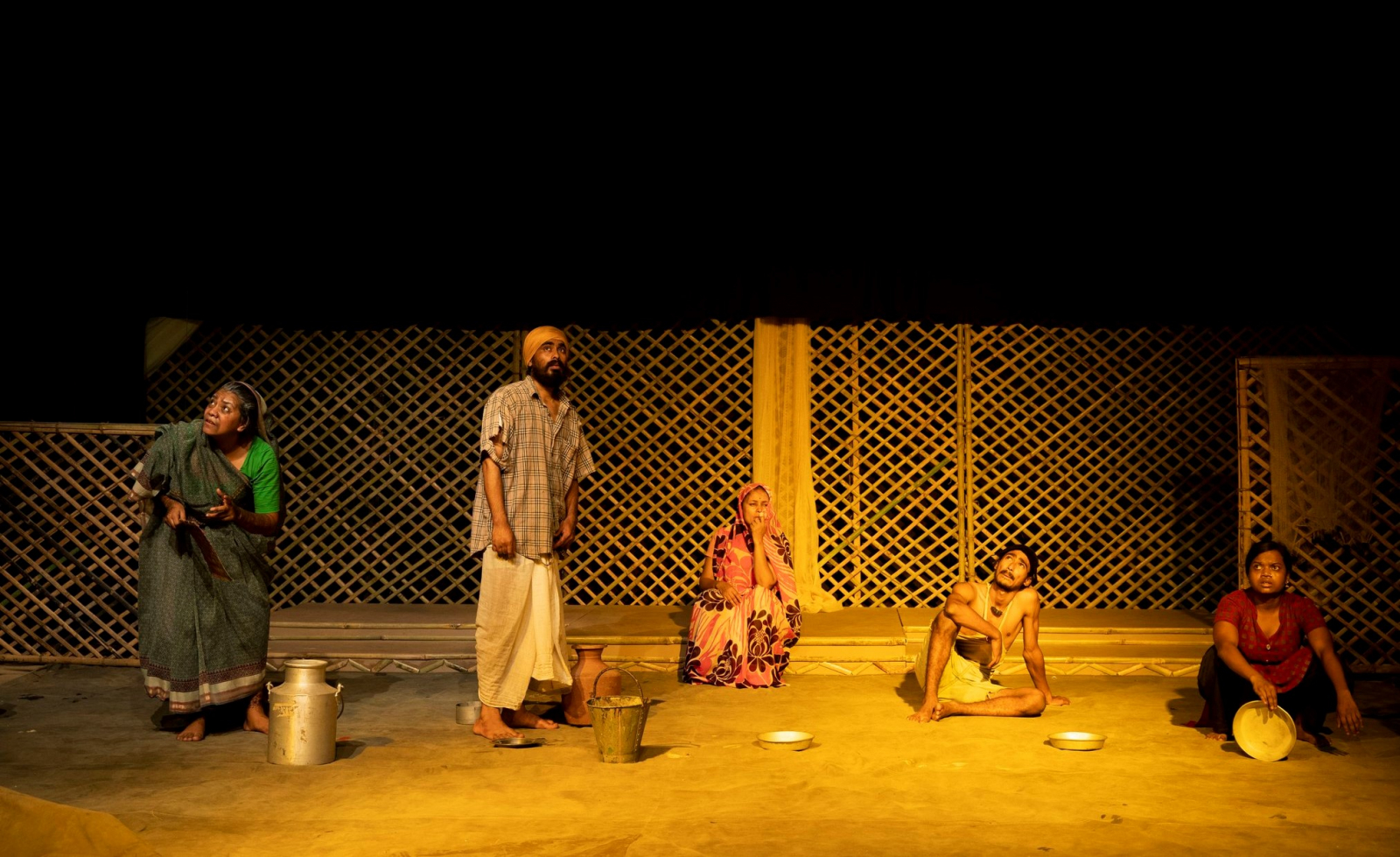
The fisherman’s family look toward the sky in hopes of rainfall. Photo Credit: Suresh SK
SHARE
Due to its high altitudes, diverse terrain and weather variability, Nepal’s environment is exceedingly vulnerable to the effects of climate change. The country faces flooding, landslides, monsoons, food shortages and a rapidly changing ecosystem. Climate change will have untold consequences on Nepal’s population, especially among rural and marginalized groups, and could cause economic, social and health problems. To mitigate these impacts, coordinated efforts among the government, citizens and the international community are needed. However, while the government has made various international commitments to address climate change such as, the Paris Agreement, it has implemented few climate-related initiatives. This inaction is leading Nepali citizens to take creative measures to raise awareness on the impact of climate change in the country and advocate for climate governance and political accountability.
Shilpee Theatre Group, a Nepal-based troupe, tells the stories of major political issues in Nepal through forum theater. In its recent production, Shilpee partnered with NDI to produce “Hiun Ko Prithivi Yatra,” or “a Journey of the Snow,” to highlight the impacts of climate change in Nepal: from the melting Himalayas to the rivers they feed; from the animals impacted by rising temperatures to the people left in the wake of natural disasters. The play follows a fisherman’s family as they face the challenges of climate change: a dam cuts off the water supply to their village just as a drought begins. While the dam supplies electricity, we see the dramatic effect the lack of fresh-water has on the villagers and animals. The fisherman must travel to look for water, and animals storm through the village in search of the same, killing a villager’s family member.
Shilpee Image One.jpg

Through the story of a fisherman and his family, Shilpee highlights the multifaceted impacts of climate change—including droughts, floods and conflict. The play explores the direct impact of humans and how development projects can impact natural resources, indigenous groups, and the environment. Adding a satirical touch, the play also depicts how the lack of political will affects these issues. The play includes the role of political leaders who are aloof and greedy, and who fail to recognize how their actions affect the environment, natural resources and people of Nepal. Shilpee demonstrates the looming reality of climate change, and how in order to mitigate or prevent its devastating impact, the issue must be an integral part of Nepal’s politics and policy moving forward.
Over 5,000 people—including politicians and government officials—attended “A Journey of the Snow”, which proved so popular that Shilpee performed additional shows without NDI support. At the end of the plays, with politicians in attendance, Shilpee hosted hour-long conversations with the audience to discuss and identify climate vulnerabilities, impacts, governance challenges and solutions going forward. One audience member said that the play showed “a strong expression of climate change and its impact on humans and animals. It has questioned our model of ‘development’ and the dim reality of our politics.” Baburam Bhattarai, a former Prime Minister of Nepal, said that it “talks of the complex interrelation between nature, rivers, animals, humans, society and the state. The theme is new, and the presentation is also very wonderful.” Importantly, the next generation of Nepali leaders was also in attendance and recognized the importance of the subject. One law school student said, “the play clearly demonstrates that the effects of climate change are never equal. Social, geographical, economic and political situations also determine its impact. Irregular and haphazard ‘development’ can add to the problems of climate change… Uncontrollable environmental degradation is not only leading to the destruction of nature but also of the entire human population. This amazing play raises all these issues.”
These theater performances are part of a larger effort to promote climate-related issues and improve environmental governance in Nepal. Following Shilpee’s plays, NDI analyzed the information gathered from the citizen discussions and shared it with Nepal’s Ministry of Forests and Environment, as well as a local partner, the Annapurna Media Network (AMN), to inform the design of its information campaign on climate change and governance in Nepal ahead of the November 2022 elections. In addition to raising awareness and promoting dialogue between the public and politicians on the issues, NDI hopes that the Ministry of Forests and Environment utilizes the information gathered to identify gaps in its public communications on the issues, and that the play can spark debate in the country to push for laws and policies that build climate resilience and protect vulnerable groups.
NDI's engagement in Nepal is implemented with support from the United States Agency for International Development (USAID) through the Consortium for Elections and Political Process Strengthening (CEPPS).
Authors: Ben Clarick Program Associate; Shraddha Pokharel Program Officer
###
NDI is a non-profit, non-partisan, non-governmental organization that works in partnership around the world to strengthen and safeguard democratic institutions, processes, norms and values to secure a better quality of life for all. NDI envisions a world where democracy and freedom prevail, with dignity for all.


